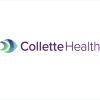Dive Brief:
- Walgreens Boots Alliance will pay nearly $270 million to the U.S. and state governments, settling two civil healthcare fraud cases which alleged the pharmacy giant for years improperly billed Medicare and Medicaid for drug reimbursement.
- In the first lawsuit, the federal government alleges Walgreens knowingly manipulated days-of-supply data for insulin pens dispensed to patients in order to secure reimbursement for medication quantities that covered people didn't actually need.
- In the second, Walgreens allegedly failed to disclose to Medicaid discount pricing that it offered through a Prescription Savings Club (PSC) program, thereby upping the amount reimbursed by states administering the healthcare program. In both cases, the company has admitted no wrongdoing, according to a statement.
Dive Insight:
The U.S. government's lawsuits against Walgreens come as so-called "gaming" of Medicare and Medicaid reimbursement receives greater scrutiny. In recent quarters, lawmakers and prosecutors alike have brought attention to the improper misclassification of drugs and fraudulent inflation of medicines' average wholesale prices.
The cases involving Walgreens cover improper practices by the pharmacy giant over a period of roughly 10 years, and both stem from whistleblower lawsuits filed under the False Claims Act.
In the suit involving insulin pens, federal prosecutors identified two practices on the part of Walgreens that resulted in overpayments.
Walgreens set up its electronic pharmacy management system so that its pharmacists could not dispense less than a full box of five insulin pens, even if that amount exceeded patient needs. According to the complaint, Walgreens also falsely stated in federal reimbursement claims that the total days of supply of insulin did not surpass the federal healthcare program's limit.
While not admitting wrongdoing, Walgreens has admitted its practice was to dispense and bill for the full carton, and then reduce the reported days of supply to comply with limits.
Additionally, Walgreens allegedly didn't disclose to Medicaid discount drug prices that were available through a PSC program the pharmacy offered.
Medicaid regulations allow reimbursement at the "usual and customary price", which is defined in many states to include prices offered by discount programs. Because Walgreens didn't disclose its PSC prices to Medicaid, state reimbursements through the healthcare program were higher than they should have been.
Walgreens has admitted that it did not identify its club prices as "usual and customary".
"The financial integrity of these programs depends on truthful and accurate billing by pharmacies like Walgreens," wrote Manhattan U.S. Attorney Geoffrey S. Berman in a Tuesday statement. "Overbilling and improper billing of Medicare and Medicaid unduly burden taxpayers and put the solvency of these vital healthcare programs at risk."
Across the two settlements, Walgreens will pay $200 million to the U.S. government and roughly $69 million to state governments.
Walgreens said in a statement that the settlement amounts have been fully reserved for in the company's financial statements as of Nov. 30, 2018. The pharmacy also has entered into a Corporate Integrity Agreement with the HHS Office of the Inspector General.
"We are resolving these matters because we believe it is in the best interest of our customers, patients and other stakeholders to move forward," Walgreens said in a statement.
Shares in the company opened slightly higher Wednesday morning following announcement of the settlement Tuesday evening.













